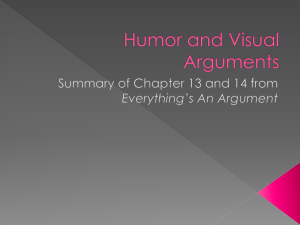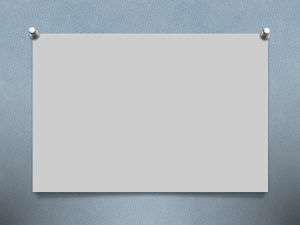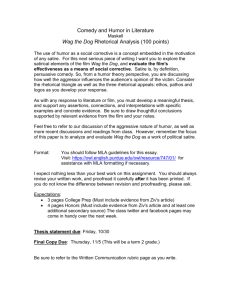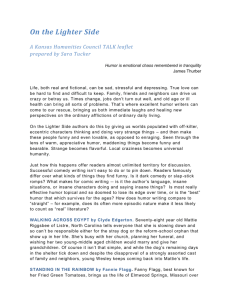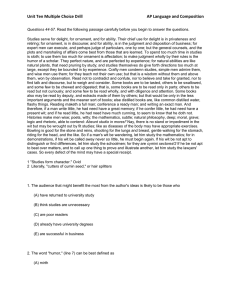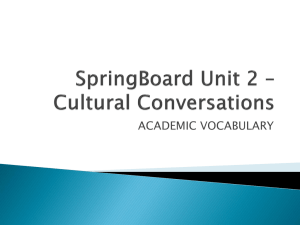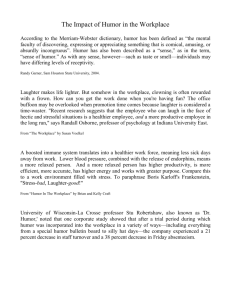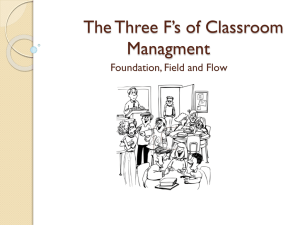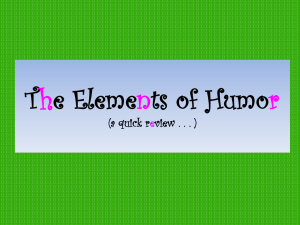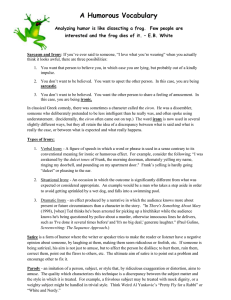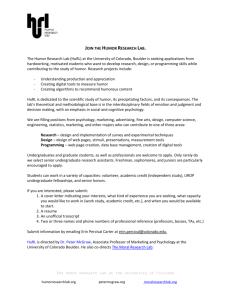File
advertisement
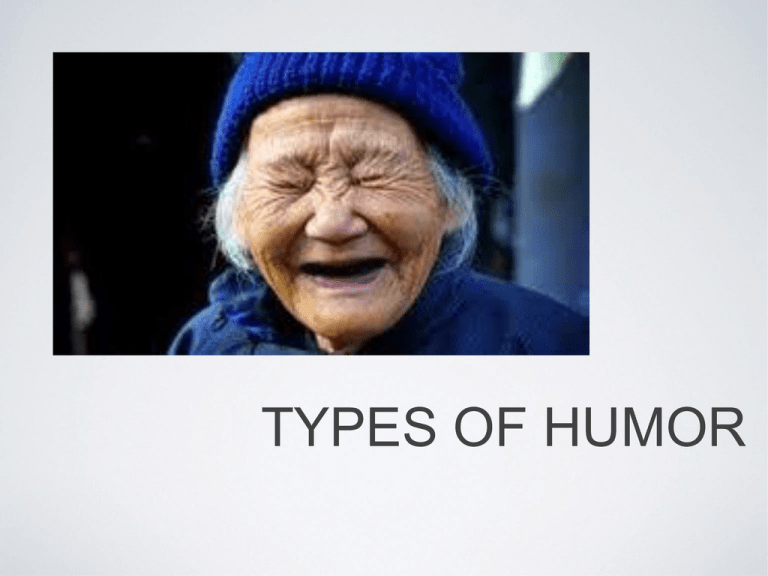
TYPES OF HUMOR HUMOR • While humor has meant several different things in its existence, we use to to mean a type of writing that's purpose is to induce laughter. HUMOR CONTINUED • Humor uses observation of human nature to discover what we all have in common. It appeals to anyone who is sympathetic. BLACK (DARK) HUMOUR • Humor that is viewed as dark, morbid, cruel, offensive to some, and or graphic in nature and is yet, still found funny. http://yalenusblog.files.wordpress.com/2013/0 1/dark1.jpg DEADPAN HUMOUR • Humor that is viewed as dark, morbid, cruel, offensive to some, and or graphic in nature and is yet, still found funny. http://www.whatisall.com/wpcontent/uploads/2011/11/Dry-Humor.gif INNUENDO •a statement which indirectly suggests that someone has done something immoral, improper, etc. http://www.merriam-webster.com/dictionary/innuendo Graze on my lips, and if those hills be dry Stray lower, where the pleasant fountains lie. (Venus and Adonis by William Shakespeare) VERBAL IRONY • A figure of speech in which the actual intent is expressed in words that carry the opposite meaning. SITUATIONAL IRONY •A situation in which actions have an effect that is opposite from what was intended, so that the outcome is contrary to what was expected Dictionary.reference.com MALAPROPISM • An amusing error that occurs when a person mistakenly uses a word that sounds like another word but that has a very different meaning Merriam Webster Online PUN • Using a word in a way to suggest more than one meaning RIDDLE • A statement with a double or veiled meaning put forth as a puzzle to be solved. Wikipedia "Which creature has one voice and yet becomes four-footed and two-footed and threefooted?" SATIRE • Satire blends a censorious attitude with humor and wit to improve the human condition. Satire will attack society (not one person) and its audience is the “self-satisfied.” The most important thing about satire is its purpose. SLAPSTICK • Physical comedy with broad humour, absurd situations, and vigorous, usually violent action. Encyclopaedia Britannica Online. WIT • Wit used to mean 'knowledge' and was used to signify 'intellect'. The word still holds a bit of its old meaning. For instance, when we call someone a 'halfwit' or a 'witless wonder', we are implying that they have no intelligence. WIT CONTINUED • To say something is witty now means to use words in a clever manner to make something funny. This usually results in plays on words, double entendres, and clever puns. The audience for wit is the intelligent.
